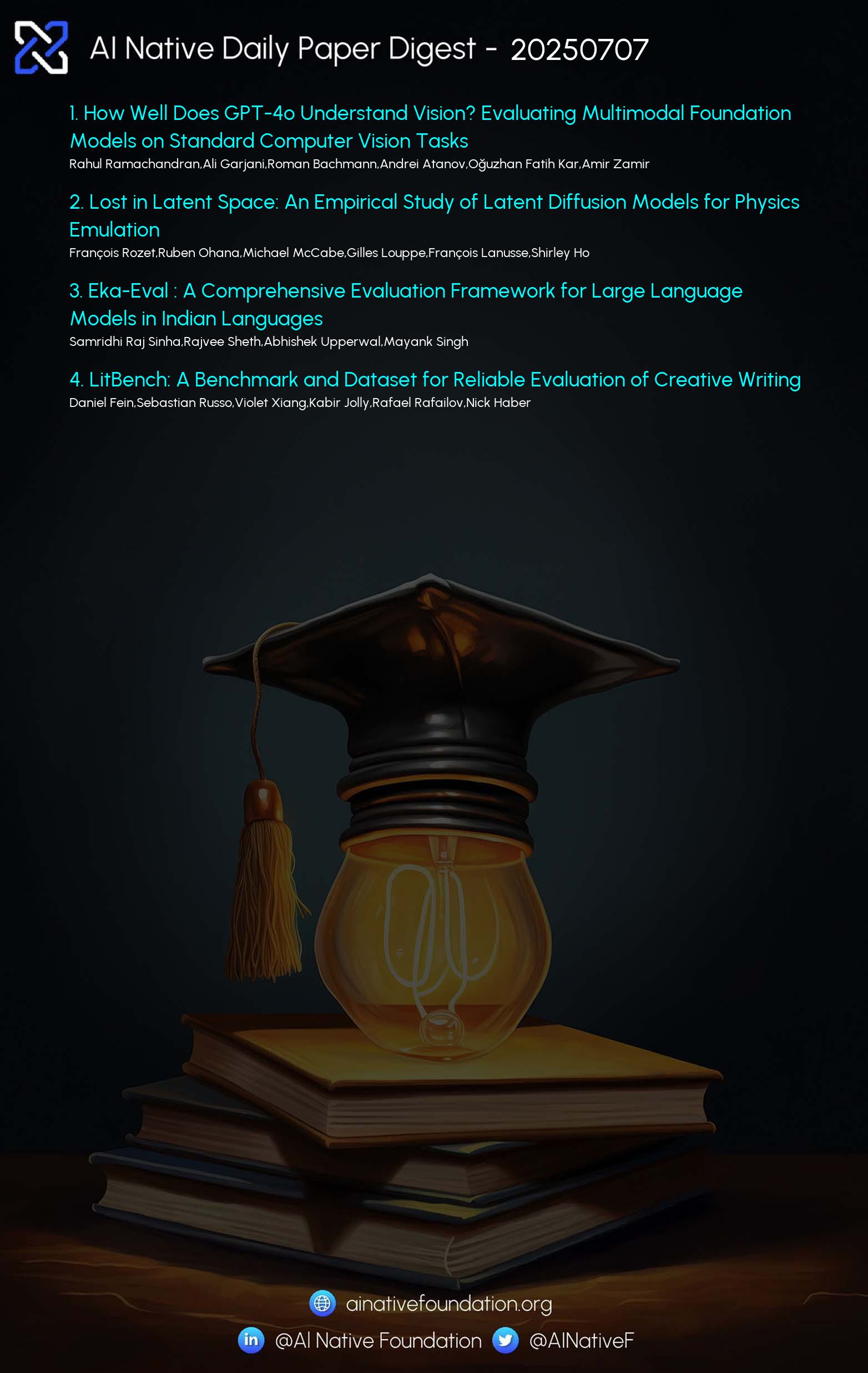AI Native Daily Paper Digest – 20250707
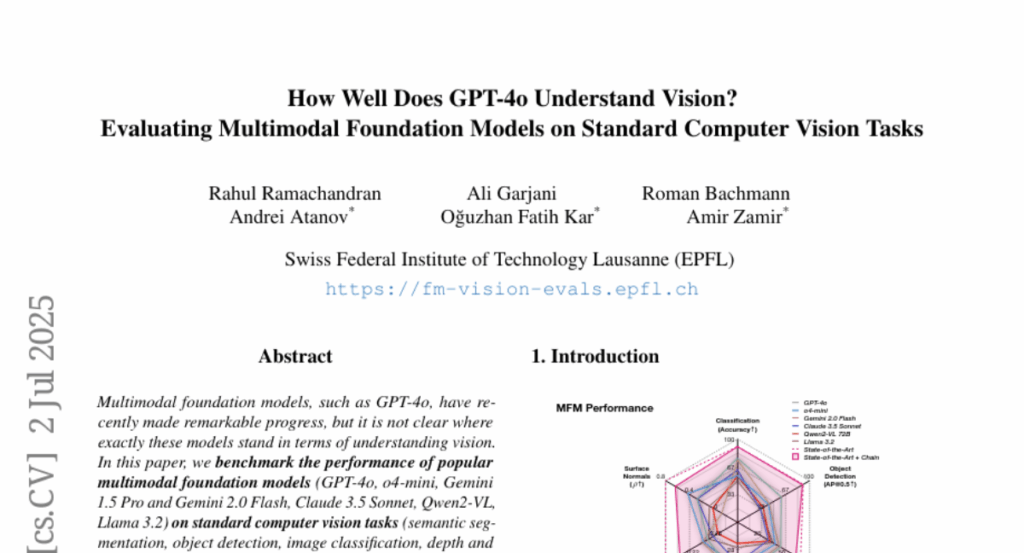
1. How Well Does GPT-4o Understand Vision? Evaluating Multimodal Foundation Models on Standard Computer Vision Tasks
🔑 Keywords: Multimodal Foundation Models, prompt chaining, computer vision, GPT-4o, reasoning models
💡 Category: Multi-Modal Learning
🌟 Research Objective:
– To benchmark the performance of popular multimodal foundation models on standard computer vision tasks and assess their understanding of vision.
🛠️ Research Methods:
– Translation of standard vision tasks into text-promptable and API-compatible tasks through prompt chaining to develop a standardized benchmarking framework.
💬 Research Conclusions:
– The models, though generalists, do not match the performance of state-of-the-art specialized models.
– They excel in semantic tasks over geometric ones.
– GPT-4o performed best among non-reasoning models.
– Reasoning models show improvements in geometric tasks.
– Models with native image generation may exhibit quirks like hallucinations and spatial misalignments.
👉 Paper link: https://huggingface.co/papers/2507.01955
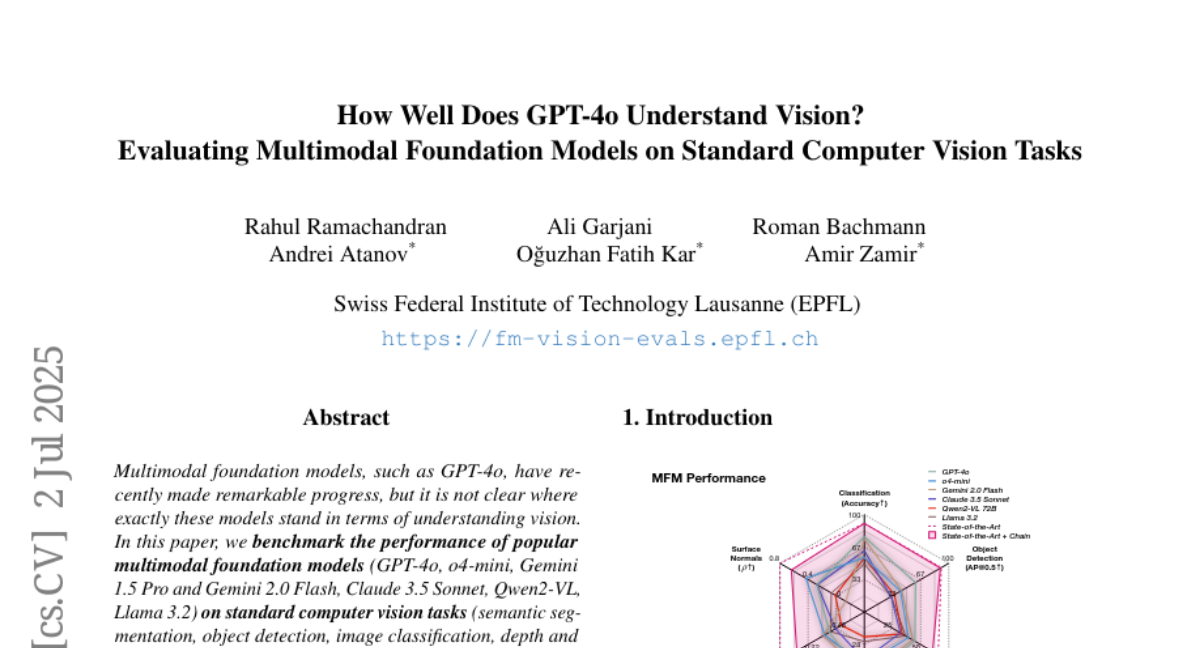
2. Lost in Latent Space: An Empirical Study of Latent Diffusion Models for Physics Emulation
🔑 Keywords: latent space diffusion, dynamical systems, AI-generated summary, inference, autoencoder
💡 Category: Generative Models
🌟 Research Objective:
– The study investigates the application of latent space diffusion models as emulators for dynamical systems, focusing on their computational efficiency and prediction accuracy compared to non-generative approaches.
🛠️ Research Methods:
– The research explores generating in the latent space of an autoencoder to mitigate the computational costs typically associated with diffusion models during inference.
💬 Research Conclusions:
– Latent space emulations maintain high accuracy across diverse compression rates (up to 1000x) and provide more accurate and diverse predictions than non-generative models. The study highlights practical design choices, from architectures to optimizers, that are crucial for training these emulators.
👉 Paper link: https://huggingface.co/papers/2507.02608
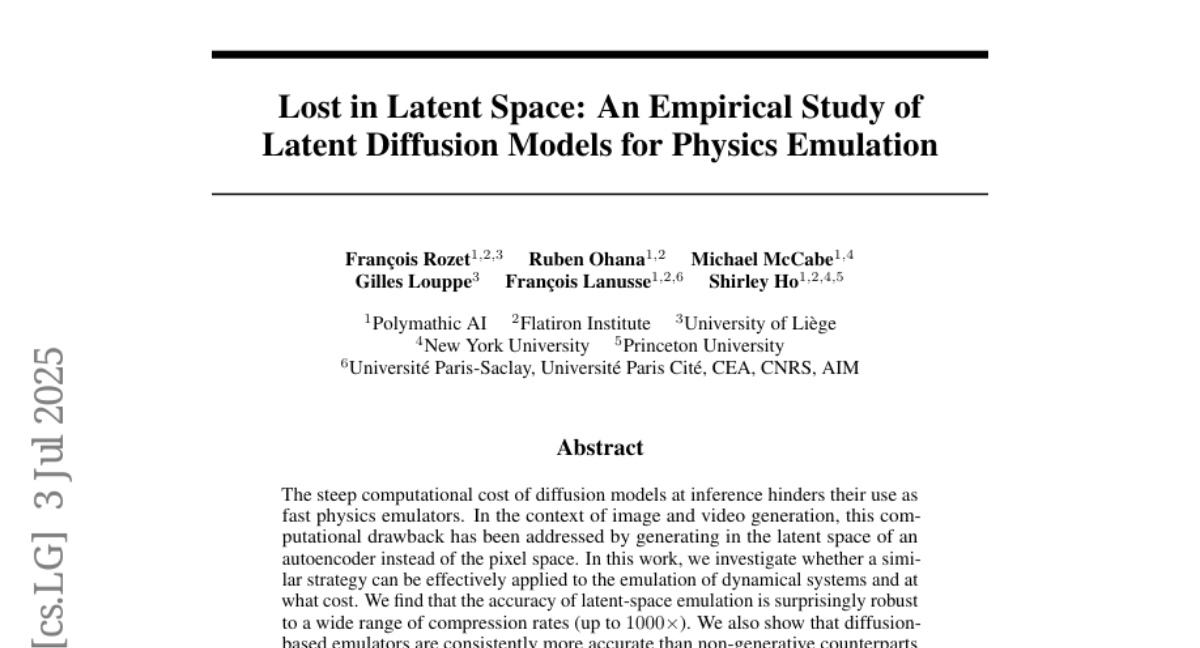
3. Eka-Eval : A Comprehensive Evaluation Framework for Large Language Models in Indian Languages
🔑 Keywords: Multilingual Evaluation, Large Language Models, Indic-specific datasets, Distributed Inference, Open-source
💡 Category: Natural Language Processing
🌟 Research Objective:
– Develop EKA-EVAL, a multilingual evaluation framework to assess Large Language Models across diverse, linguistically significant benchmarks beyond English.
🛠️ Research Methods:
– Integrate over 35 benchmarks with specific focus on Indic datasets and utilize features such as distributed inference, quantization, and multi-GPU usage.
💬 Research Conclusions:
– EKA-EVAL establishes itself as a comprehensive, open-source evaluation suite for global and Indic LLMs, enhancing multilingual benchmarking capabilities. The framework aims to expand significantly, contributing to a robust evaluation ecosystem.
👉 Paper link: https://huggingface.co/papers/2507.01853
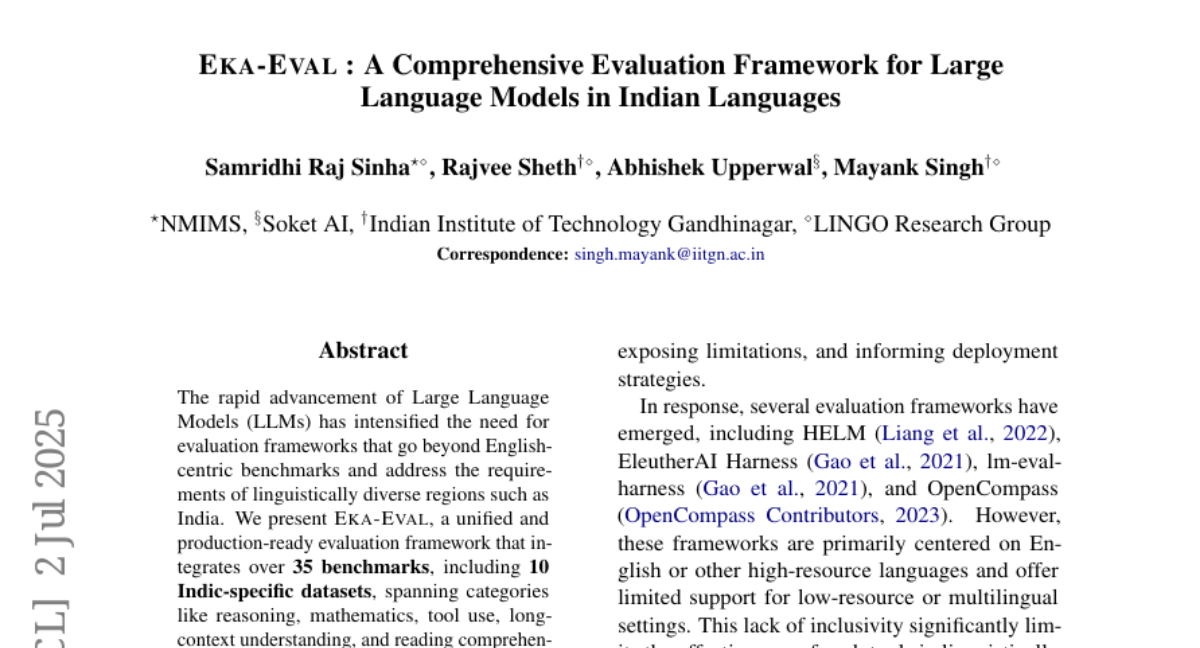
4. LitBench: A Benchmark and Dataset for Reliable Evaluation of Creative Writing
🔑 Keywords: LitBench, Creative Writing, AI-generated content, Zero-shot judges, Reward models
💡 Category: Natural Language Processing
🌟 Research Objective:
– To establish LitBench, a standardized benchmark and dataset for evaluating creative writing generated by language models.
🛠️ Research Methods:
– Conducted benchmarking of zero-shot language model judges using LitBench.
– Trained Bradley Terry and generative reward models for improved evaluation accuracy.
– Conducted an online human study to validate the rankings of reward models on newly generated stories.
💬 Research Conclusions:
– LitBench identifies Claude-3.7-Sonnet as the strongest off-the-shelf judge with 73% alignment to human preferences.
– Bradley Terry and generative reward models achieved a higher accuracy of 78%, outperforming all off-the-shelf judges.
– The online human study confirmed that trained reward models consistently aligned with human preferences.
– LitBench and the reward models are now available on Hugging Face for further research and application.
👉 Paper link: https://huggingface.co/papers/2507.00769
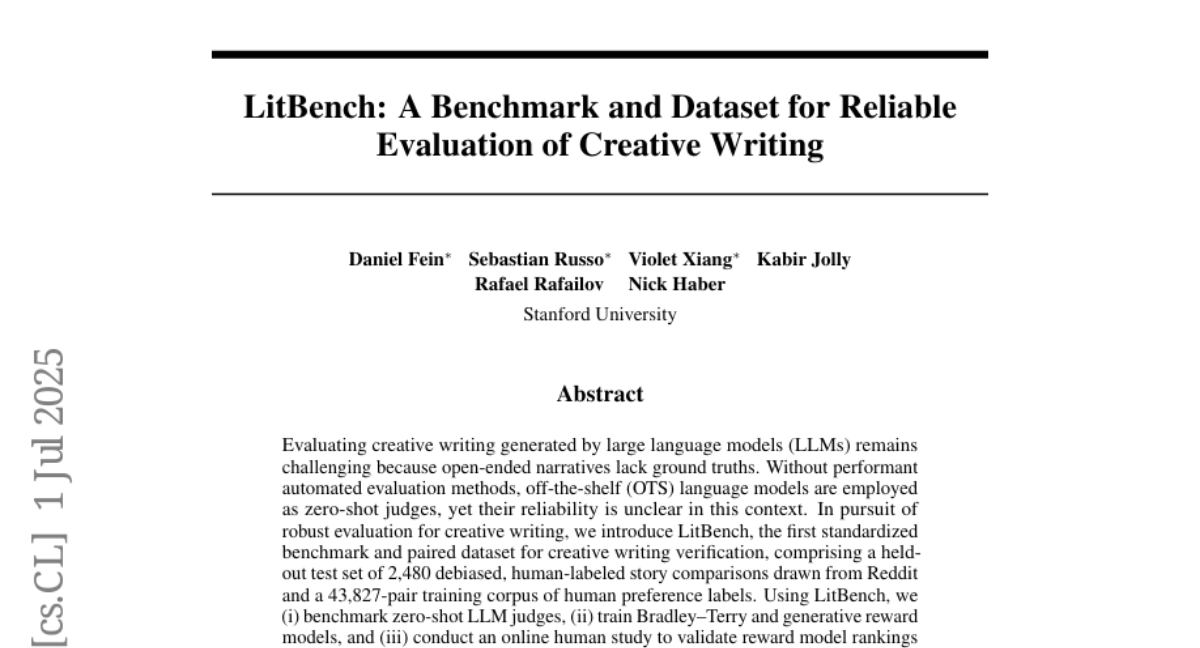
5.
